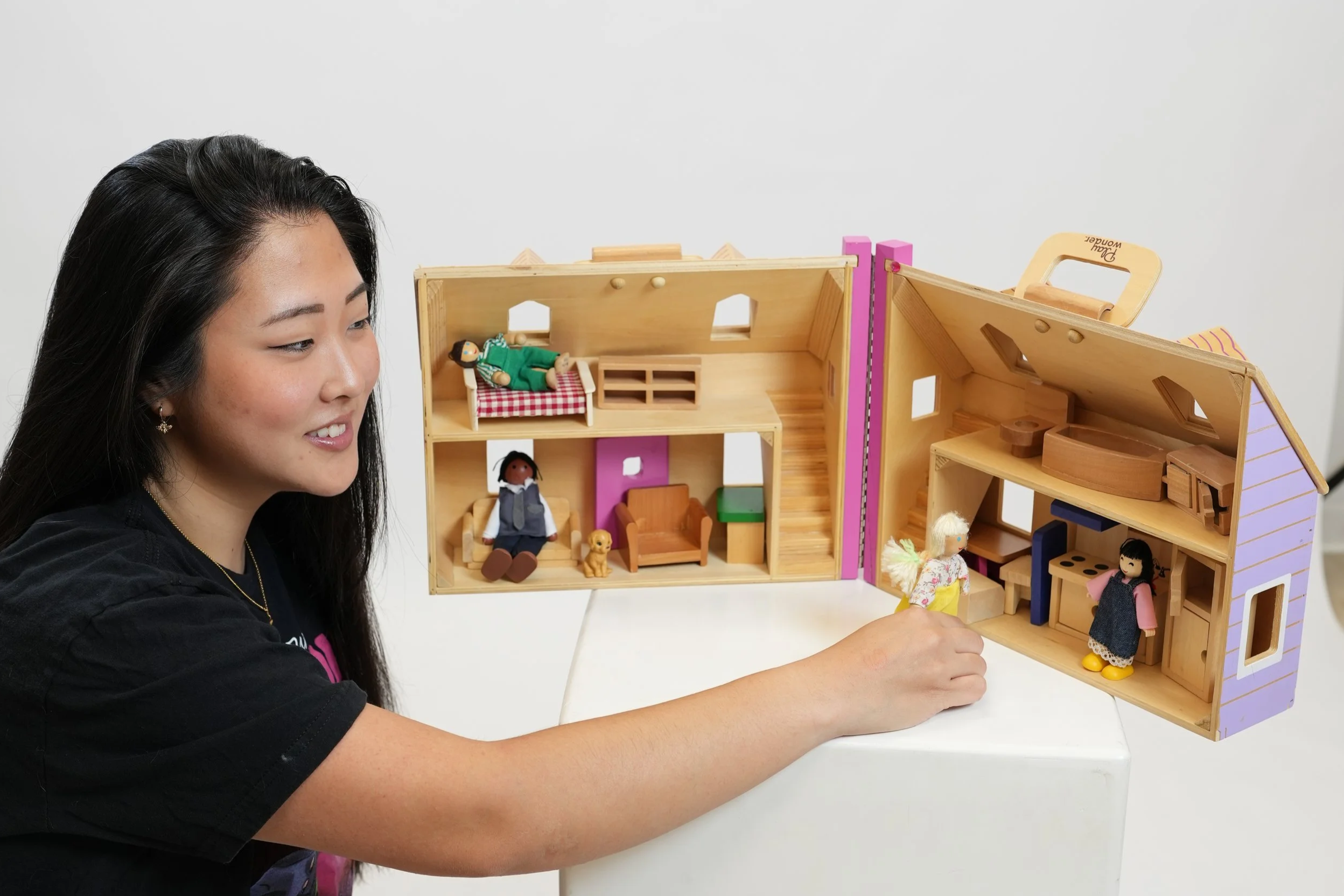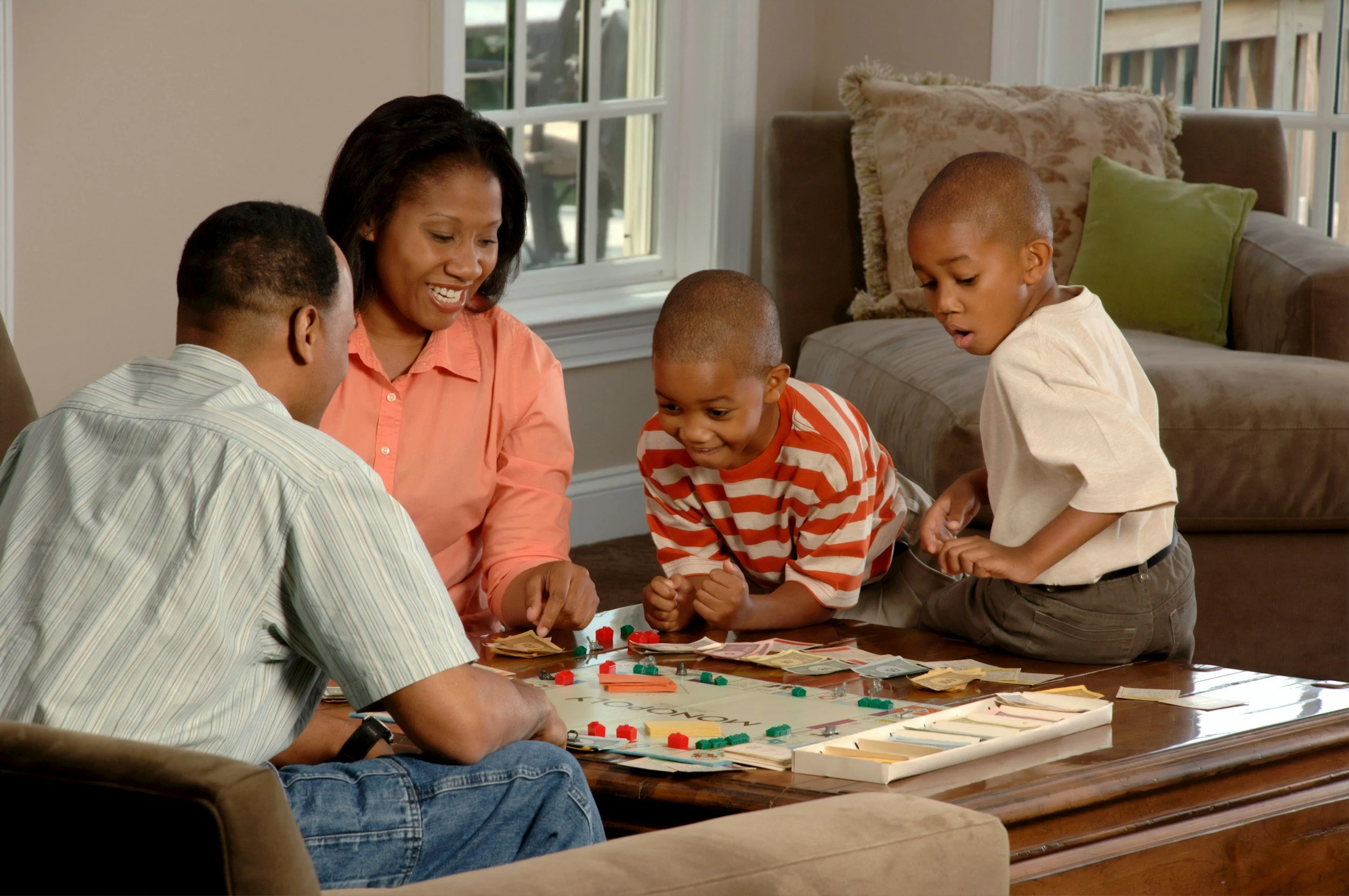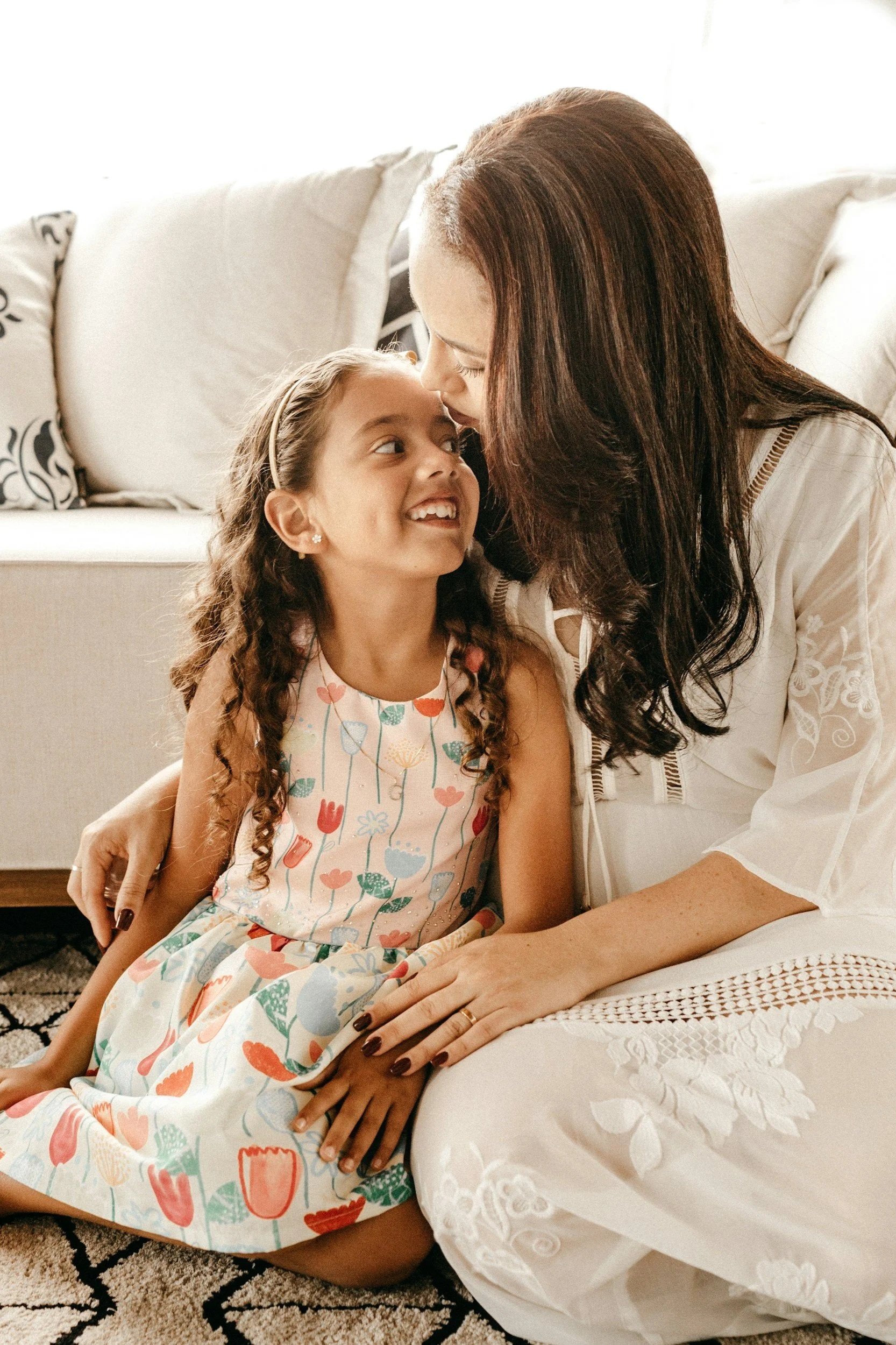
Play Therapy for Children
Because BIG FEELINGS can be a hard part of growing up.
Learn more about how I help children and parents in Northern Virginia navigate challenging feelings and behaviors as a Registered Play Therapist™.
Play therapy is a therapeutic approach that can be used with children as young as 3 and up to 12 years old to explore and express feelings, experiences, and thoughts through the therapeutic powers of play.
Play therapists are specially trained to engage with children through play in a way that is supportive, empathetic, and fosters emotional growth and healing. Play therapy helps children express and understand their thoughts and feelings in developmentally-appropriate ways, learn how to resolve their problems, and improve emotional regulation.
What is Play Therapy?
Even though a child might be able to use words in some contexts, most children often lack the abstract verbal reasoning skills needed in order to communicate themselves fully with their words. Play is the natural way children express themselves, so play therapists use it to understand and meet them where they’re at! I get to step into your child’s world instead of asking them to enter mine.
Play therapy has been highly researched and is an effective evidence-based practice for addressing a wide variety of children’s emotional, social, and behavioral challenges.
The play provides a safe psychological distance, which allows children to explore their problems and emotions without feeling threatened or overwhelmed by them.
Play therapy is also experiential, meaning instead of simply talking about problems or feelings, children have the opportunity to manage their feelings and solve their problems in their sessions, which encourages deeper learning and growth.
Why Play Therapy?
How Can Play Therapy Help My Child?
While many parents bring their children to me to work on concerning or challenging behaviors, they are sometimes surprised to discover that I don’t actually work from a behavioral approach focused on stopping or modifying a behavior.
I see all behavior as communication and the symptom of an underlying emotional challenge or unmet need, not the problem itself.
Therapy is aimed at emotional healing and growth, which as a result tends to naturally resolve the challenging and unwanted behaviors.
Imagine if your child had:
less frequent and intense tantrums, meltdowns, and outbursts
the ability to manage change, frustration, and disappointment
less anxiety and stress
healthier ways of expressing their thoughts and feelings
more self-esteem, self-acceptance, and resilience
more empathy and understanding for others
better social skills, communication, and cooperation with family, peers, and/or teachers
more accountability and responsibility
more respect for limits and boundaries
better decision-making, planning, and problem-solving skills and impulse control
less nervous system activation (fight/flight/freeze) responses
the ability to more effectively use and respond to coping skills
another person in their support system and a safe place for ALL their feelings
What types of problems can Play Therapy help with?
Some of the most common challenges that parents bring their children to therapy for include:
Anxiety (including separation, specific phobias, perfectionism)
Anger/Aggression
Social and Relational problems
ADHD*
Autism*
Low Self-Esteem
Grief/Loss
Trauma
Play Therapy Helps Parents/Caregivers, too!
Imagine if you as a parent had:
less conflict and power struggles to deal with
a stronger parent-child relationship and/or feeling of connection
a more peaceful and harmonious home environment
less calls and emails from school about challenging classroom behaviors
less parenting anxiety and stress
more confidence in your parenting skills and style
better tools for supporting your child’s emotions
more effective limits and boundaries that your child respected
a deeper understanding of and appreciation for your child’s thoughts, feelings, perceptions, and experiences
more support for navigating tough parenting areas
Parents and caregivers are an essential aspect to children’s progress! After all, you are at the top of your child’s support system. Children and their challenges are highly influenced by their environment and external factors. Therefore, changes in the environment and types of support provided are often needed in order to allow your child to grow to their full potential.
My goal as a play therapist is to partner with you in your child’s treatment and support your parenting needs, too.







